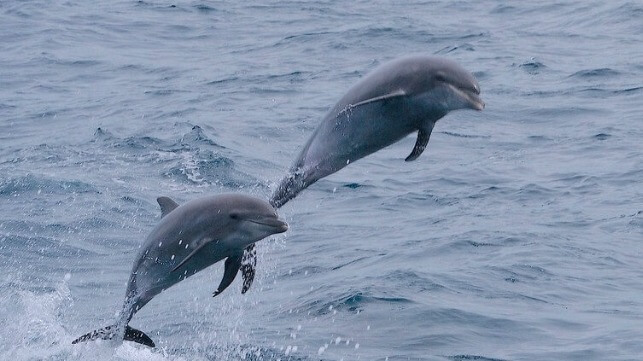Marine Mammal Bycatch Could Cost Ecuador Access to U.S. Seafood Market

A group of conservation NGOs has called on the Ecuadorian government to prevent whale and dolphin bycatch in its fisheries, warning that it could risk losing the legal right to export to the U.S. seafood market if it does not improve regulation and monitoring. Seafood exports to the U.S. account for about one percent of the small nation's GDP.
A U.S. law enacted in 2016 gives foreign nations until January 1, 2024 to implement the same marine mammal protection standards required of U.S. fishermen. If they do not, the National Marine Fisheries Service is to required to ban their products.
“Ecuador had more than six years to get its fisheries and marine mammal programs up and running in time to show results, but it failed to do so. U.S. fishermen and consumers shouldn’t suffer from that failure; Ecuador's non-compliant seafood should be banned," said Zak Smith, the biodiversity conservation director at NRDC.
Ecuador enacted a fisheries reform law in 2020, but it has no stipulations for marine mammal bycatch, according to NRDC and the Center for Biological Diversity. Ecuador's waters are home to 30 different species of marine mammals, and bycatch is known to affect several dolphin populations - but the extent is not fully known, because the Ecuadorian government keeps no data on this question. Gillnet entanglement and bycatch from artisanal fishing also regularly affect coastal populations of humpback and sperm whales.
"Ecuador’s government needs to build on its new fishing law by tracking and limiting bycatch to save marine mammals and their export fishing industry," said Sarah Uhlemann, international program director for the Center for Biological Diversity. "We’re also worried for Ecuador’s hardworking fishers. If they can’t sell their fish products in the lucrative U.S. seafood market, it will be a huge economic blow."
In the meantime, the NGOs believe that some Ecuadorian fishermen are putting their whale and dolphin bycatch to use, cutting it up and using it for bait in fish aggregating devices (FADs). This is an emerging threat to dolphins, and at least six different species are used for this application. This practice should be halted, the groups said.
“The Ecuadorian government must do all it can to ensure that dolphins, whales and sea lions are not used as bait in any of its fisheries, including FAD fisheries,” said Kate O’Connell, marine wildlife consultant with the Animal Welfare Institute.
The Ecuadorian government has also come in for criticism on its mixed approach to shark fishing, which is technically banned in the country's waters. Ecuador takes a stringent approach to foreign fishing vessels with sharks found aboard; however, sharks caught by Ecuadorian fishermen are treated as allowable bycatch, and they are a lucrative part of a mixed-species commercial fishery. This is a common enough practice that Ecuador has become the largest shark-fishing nation in the region.
